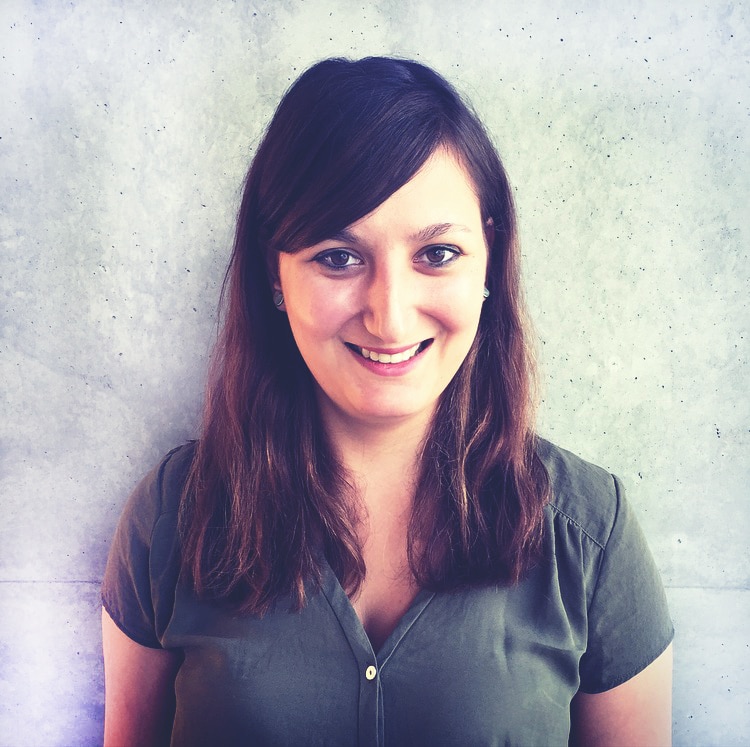Meet our CODE_n CONTEST Finalists 2016: Everledger from the UK

Our CODE_n CONTEST finalist Everledger is a leader in the real world application of blockchain technology. The FinTech startup develops and deploys innovative technological solutions to markets where provenance matters by creating an immutable digital footprint of items. Once items are registered on the blockchain, the records are permanent. This provides a clear audit trail for different parties to use throughout the supply chain in order to prove authenticity and reduce the risk of fraud. CEO and Founder Leanne Kemp told us more about her company:
What is Everledger all about? How did you come up with the idea?
Leanne:Everledger is a global, digital ledger that tracks and protects valuable items over their lifetime journey. By digitally certifying assets we can provide a clear audit trail to be used by various stakeholders throughout the supply chain process to guarantee transparency and protect against fraud, theft, crime and counterfeit activities.
Everledger is all about transparency. When blockchain first became available industry’s main focus was on the financial implications of the technology – international payments. But for me, given my background was not from banking or payments, it was clear that valuable items would be better protected on a digital platform where records were permanent and could not be altered like paper.
Ultimately we’re working to protect an object that relies on provenance to prove ownership, identity and authenticity. Provenance is key to ensuring goods are sourced ethically because, for instance, blood diamonds and counterfeits goods help fund terrorist activities globally.
“Digital Disruption“ – that’s the motto of this year’s CODE_n CONTEST. What makes your solution innovative, what makes it disruptive?
Leanne:Everledger is the only blockchain company focused on the certification and provenance of luxury goods. Our solution evolves and advances current industry practices that rely on paper records to prove ownership and authenticity.
For the last year our focus has been on digitally certifying polished diamonds as this is a world I know well. What we’ve seen in the diamond industry, and more broadly throughout the luxury goods world, are instances where paper certificates have been tampered with to misrepresent and deceive. Just last February synthetics diamonds were being sold through online retail market Alibaba, masquerading as authentic stones accompanied by fake diamond certificates.
Ultimately Everledger’s technology ensures authenticity, a single version of the truth. We use blockchain’s defining characteristics (immutability, security and speed) to provide a more advanced solution than current paper certification.
You’re one of the 13 finalists in the Applied FinTech contest cluster. Which challenges do you think young companies have to face in this sector? How do you handle these challenges?
Leanne: The issue faced by all companies in the emerging tech space is the expectation from industry of what is possible through the technology. For us in the blockchain world there is a current narrative around blockchain as a solution to all the world’s ills.
We are custodians of the technology for industry and you have to be mindful of its current capabilities and understand the application to the problems that is being solved. For us, we never allow ourselves to get carried away with industry dialogue and instead focus on building the architecture for your proposed solution, otherwise someone will get there faster!
Blockchain is one of the hottest topics in the financial industry these days with endless use cases and possible scenarios. 10 years from now, what do you think will be the status of Blockchain?
Leanne: Blockchain has infinite possibilities but it’s still a very nascent technology – Everledger, banks, insurers, and large institutions are learning more every day.
In ten years I envision the blockchain space similar to how we think about the web, it will be ubiquitous with digital transactions and underpin trust in open market places.. It’s part of the natural fabric of our everyday routine but it’s not something we consciously think of day to day.
There will be a natural movement in business to digitize records and implement smart contracts. In my opinion the blockchain will still be the best environment to build and engineer these solutions.
Thanks so much for the interview, Leanne!






Write a comment